Martinů: Early Orchestral Works, Volume Two
Martinů’s mature orchestral works are now a mainstay of the repertoire. But the generous quantity of orchestral music he wrote between his late teens and early thirties is as good as unknown; some of it, indeed, has never even been performed. That’s the case with the ballet Stín (‘The Shadow’) from 1916, which has its world premiere in this recording – astonishingly, in view of the quality of the music it contains. Although the action of the ballet is dark – a girl dances with her shadow in the presence of Death – Martinů’s score presents a series of remarkably buoyant and cheery dances.
Dorota Szczepańska, offstage soprano
Anna Maria Staśkiewicz, violin
Agnieszka Kopacka, piano
Sinfonia Varsovia
Ian Hobson, conductor
Listen To This Recording:
-
Stín (‘The Shadow’) — Ballet in One Act, H102 (1916)
- Introduction
- Song – the girl appears
- Girl’s dance
- Lento
- Allegretto
- Moderato (di valse)
- Ball game
- The ball falls into the water and the girl sees her reflection
- The shadow rises from the water and dances
- Comodo (Allegro ma non troppo)
- Tempo di Menuetto
- Trio
- Vivace
- Allegro
- Allegro vivace
- Three dark figures appear in the background
- The dancing continues, becoming ever faster (Allegro vivace)
- The girl collapses exhausted but the shadow dances onwards towards the central dark figure
- The song is heard again from afar
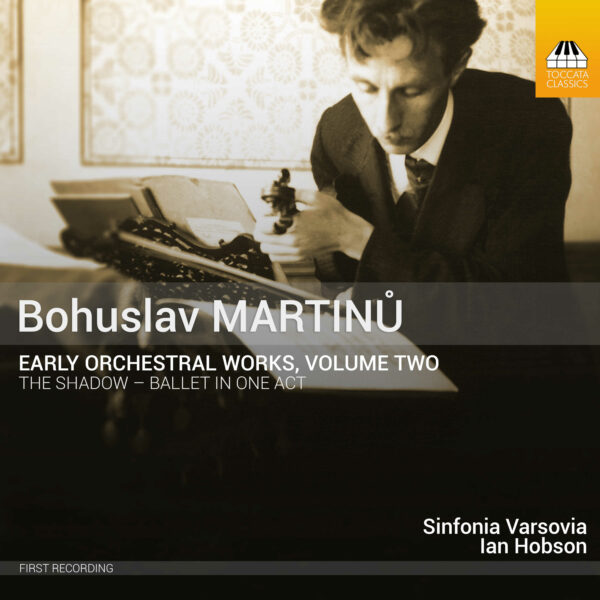
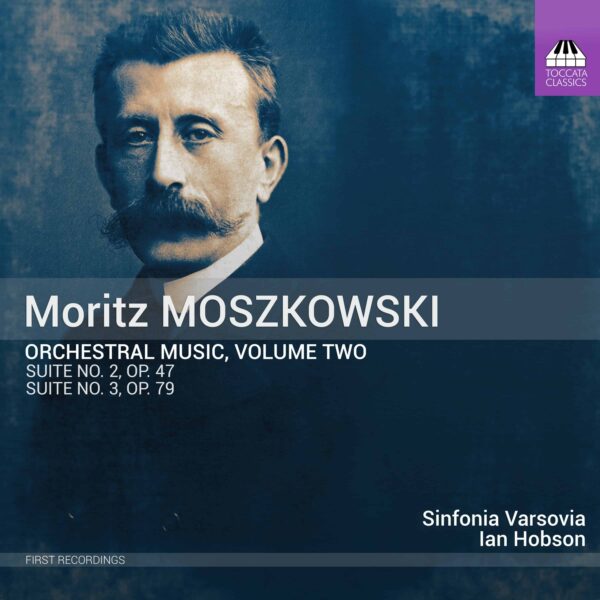
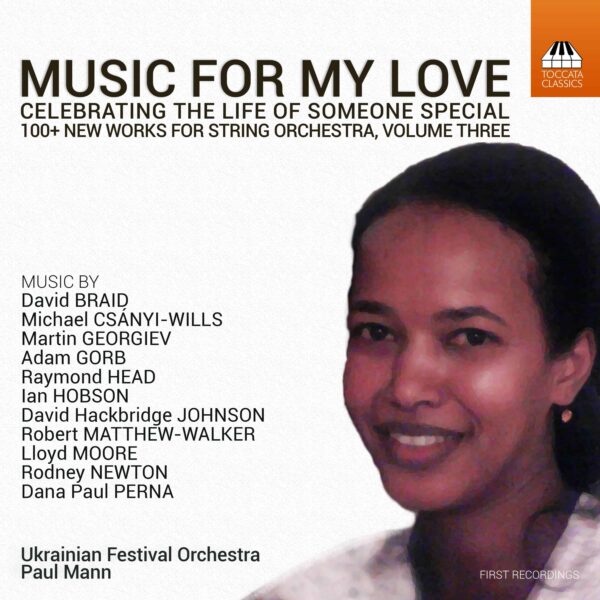
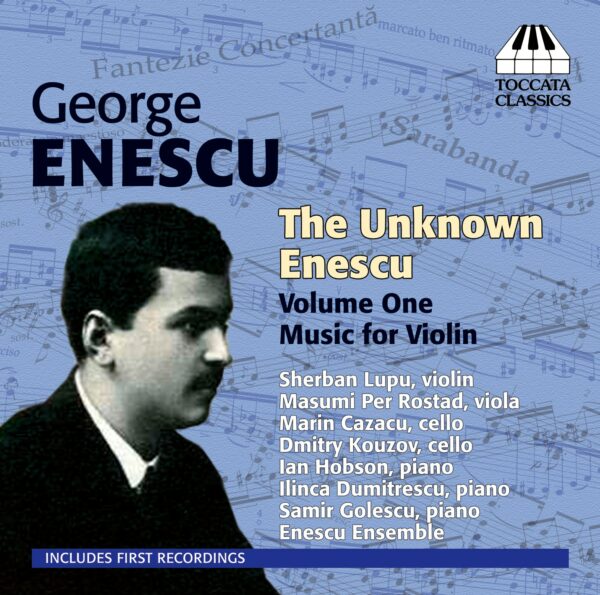
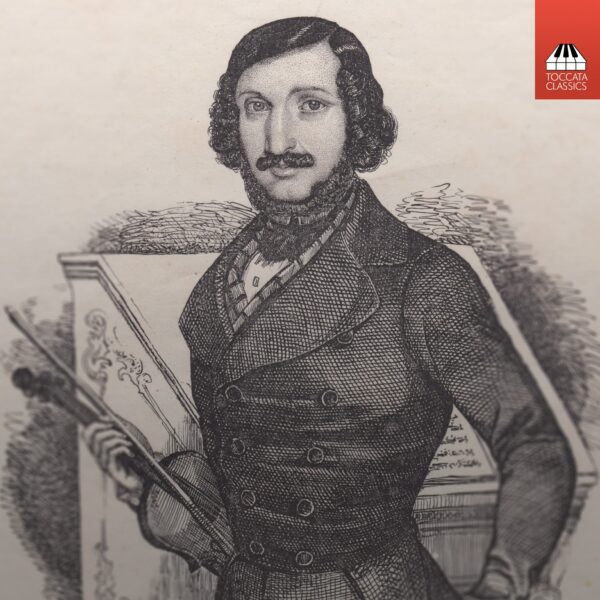
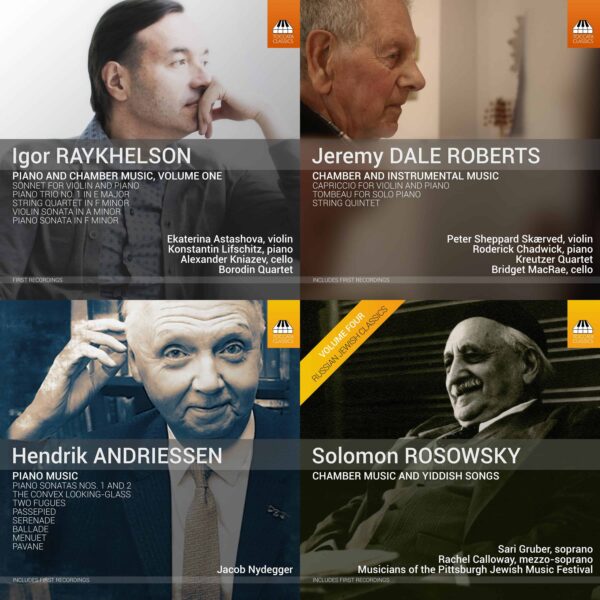
Fanfare Magazine :
‘There is a huge amount of music by Martinů, and it is good that works outside of the more familiar are beginning to surface. … Hobson clearly loves this piece. There is huge tenderness in the “Girl’s Dance,” particularly just before the Lento. While there is more than an element of darkness to the story, Martinů’s music is remarkably chipper, and everywhere graceful. Expertly scored, one particularly relishes the violin solos of Anna Maria Staśkiewicz, especially perhaps the one in the Lento section accompanied by eight divided strings and harp. … The booklet notes tell us that there are no stage directions whatsoever for over 1,000 measures, but what joy is contained within those stretches for the listener. The sighing gestures of the Tempo di menuetto, a delight in themselves, give way to a lovely solo violin theme. … This is the first recording of The Shadow. Volume One of this series of Early Orchestral Works by Martinů was welcomed by Lynn René Bayley in Fanfare 37:1; it falls to me to both echo and extend her enthusiasm.’
—Colin Clarke, Fanfare, November/December 2016
MusicWeb International :
‘it’s fascinating to trace forward-looking developments in Stín. This splendidly buoyant performance, well recorded and expertly performed and directed, is a world premiere recording and offers plenty of opportunities to follow in Martinů’s musical footsteps.’
—Jonathan Woolf, MusicWeb International
The Classical Reviewer :
‘Ian Hobson and Sinfonia Varsovia provide a really fine performance of Martinů’s early ballet, Stín (‘The Shadow’) on volume two of Toccata Classics Early Orchestral Works series […]
So much of Martinů’s mature voice is apparent here making this a real find worth adding to the Martinů recorded catalogue.
Ian Hobson and Sinfonia Varsovia along with their soloists provide a really fine performance and receive an excellent recording from the Witold Lutosławski Concert Studio, Polish Radio, Warsaw.’
—Bruce Reader, The Classical Reviewer
MusicWeb Inernational :
‘Recording of the year 2016
What’s gone wrong – I’ve chosen a modern recording. But here’s the read-about but never-encountered (until now) Stín or The Shadow, Martinů’s one act ballet of 1916. Certainly, there are naïve elements, but what’s of far more interest is the tracing of encoded figures that would such a part in his mature masterpieces. Listen sympathetically and you will find much to love.’
—Jonathan Woolf, MusicWeb Inernational